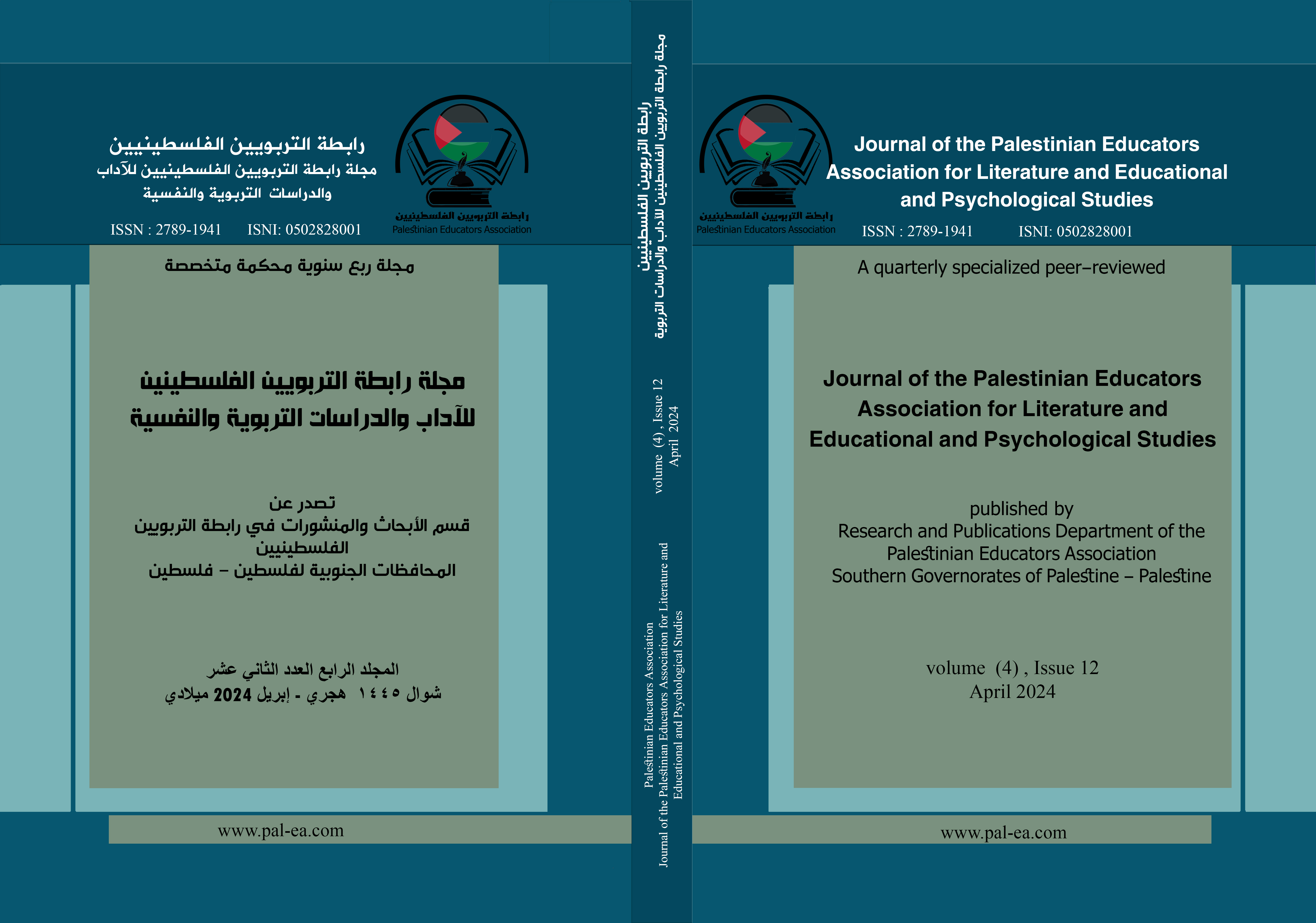a researcher student and effective solutions for peers with disabilities
Keywords:
research student-handicapped student -special needs student-inclusive learningAbstract
Abstract: The study aimed to train students to use the scientific research method to compare inclusive education and inclusive education. It also aimed to work on providing the requirements for inclusive education in school, as it is the right of people with disabilities to education. As a result of this study, there are a number of educational problems in the educational system that require searching for solutions. Scientific, and the study was applied to a sample of 21 female students with disabilities distributed among school classes from first grade to Tawjihi. The study followed the qualitative approach represented by interviews, visits, data collection, and making comparisons between inclusive education and inclusive education in providing better rights for people with disabilities. It was one of the most important results. The initiative is the school’s endeavor to provide the necessary material and human requirements to ensure effective inclusive education that guarantees the provision of the rights of people with disabilities. One of the most important recommendations of the study is to enhance awareness and education about issues of people with disabilities among the entire community, including parents, students, teachers, officials, associations and various institutions, and to provide psychological and emotional support programs. For individuals with disabilities and their families to help them cope with the challenges they may face, and using technology to provide tools and techniques that help individuals with disabilities improve their quality of life and increase their independence in daily life.
Downloads
References
المصادر والمراجع
-الجسار، سلوى.(2008).التعليم الجامع استيعاب لكل الفئات واستجابة لجميع الاحتياجات، المركز العربي للبحوث التربوية، الصفحات 95-114.
-صالح، عبد السلام. (2016). دمج المعاقين ذهنيا في المدارس الحكومية ،المجلة العلمية للخدمة الاجتماعية، العدد الثالث المجلد الثاني الصفحات من 1-20.
-محمد إيناس, ابو المجد امين. (2019).متطلبات الوفاء بالحقوق التربوية لذوي الاعاقة كما تعكسها السياسات التعليمية، مجلة كلية التربية بالمنصورة، العدد 105 المجلد 3 الصفحات 140-173.
-وزارة التربية والتعليم العالي. (2015). سياسة التعليم الجامع في فلسطين،على الموقع الالكتروني بتاريخ
-2-2022 www.moehe.gov.ps .
المراجع العربية الإنجليزية
Al-Jassar, S. (2008). Inclusive education accommodates all groups and responds to all needs, (in Arabic) Arab Center for Educational Research, pp. 95-114.
Saleh, p. (2016). Integration of the mentally handicapped in public schools, (in Arabic) Scientific Journal of Social Work, Issue 3, Volume 2, pages 1-20.
-Mohamed A. (2019). Requirements for fulfilling the educational rights of people with disabilities as reflected in educational policies, (in Arabic) Journal of the Faculty of Education in Mansoura, Issue 105, Volume 3, Pages 140-173.
-The Ministry of Education and Higher Education. (2015). Inclusive education policy in Palestine, on the website on2-19-2022 www.moehe.gov.ps.
المراجع الأجنبية
Piaget, J. (1970). Science of education and the psychology of the child. Orion Press.
Vygotsky, L. S. (1978). Mind in society: The development of higher psychological processes. Harvard University Press.
Bandura, A. (1977). Social learning theory. Prentice-Hall.
Knowles, M. S. (1975). Self-directed learning: A guide for learners and teachers. Association Press.
Gagne, R. M. (1985). The conditions of learning and theory of instruction. Holt, Rinehart & Winston.
Bronfenbrenner, U. (1979). The ecology of human development: Experiments by nature and design. Harvard University Press.
Downloads
Published
Issue
Section
License

This work is licensed under a Creative Commons Attribution-NonCommercial-ShareAlike 4.0 International License.
The Journal of the Palestinian Educators Association for Literature, Educational and Psychological Studies
E-issn: 2789-1941
Authors retain Copyright
The Journal of the Palestinian Educators Association for Literature, Educational and Psychological Studies allows Authors retain Copyright and grant the journal right of first publication with the work simultaneously licensed under a Creative Commons Attribution (CC-BY) 4.0 License that allows others to share the work with an acknowledgment of the work’s authorship and initial publication in this journal.
Provided they are the owners of the Copyright to their work, authors are able to enter into separate, additional contractual arrangements for the non-exclusive distribution of the journal’s published version of the work (e.g., post it to an institutional repository, in a journal or publish it in a book), with an acknowledgment of its initial publication in this journal.
Authors are permitted and encouraged to post their work online (e.g., in institutional repositories, disciplinary repositories, or on their website) prior to
and during the submission process.










